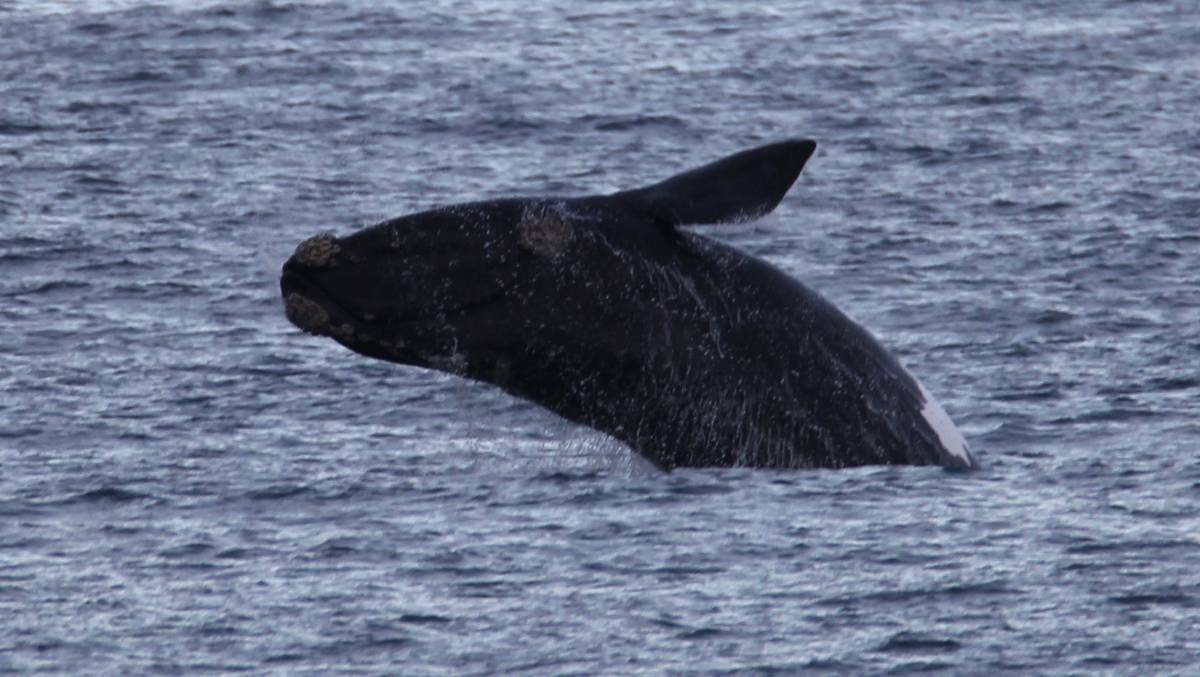
NSW Police have urged boaters to stay well clear of migrating whales after a man was left in a critical condition when he was struck by a breaching whale on the weekend.
Whale-watching is a popular pastime in Sutherland Shire and St George, especially around the peak whale migration period in June and July when whales head north in search of warmer waters to give birth.
Authorities today urged boaters to be aware of surroundings and maintain safe distances while on the water during this whale migration season after a serious incident involving a recreational vessel on the state's South Coast on Sunday.
NSW Police said Marine Rescue NSW received a MAYDAY call just after 9am on Sunday after a breaching whale landed on top of a recreational vessel off the coast of Narooma.
"The 39-year-old male skipper advised that his 18-year-old male passenger had sustained a serious head injury and [he] was trying to navigate back to the boat ramp, despite the vessel taking on water," police said.
"NSW Ambulance paramedics met the vessel at the boat ramp and treated both men before taking them to hospital for treatment."
The younger man was later flown from Moruya Hospital to Canberra Hospital, where he remains in a critical but stable condition today.
The older man was treated at Moruya Hospital for facial lacerations and concussion.
Marine Area Commander Superintendent Joe McNulty said Maritime NSW had launched an investigation into the incident.
"While inquiries are in their infancy, the incident demonstrates the dangers these mammals can pose to those on the water," Superintendent McNulty said.
"In recent days, the number of whales migrating north has dramatically increased, and maritime authorities have received reports they're travelling closer to the coast than in previous years.
"Given the close proximity to the shoreline, there is potential for some spectacular whale watching, but we encourage anyone hoping to get a closer look to maintain a safe distance."
NSW Police said it was believed the whale could have been injured during the incident and NSW National Parks and Wildlife Service (NPWS) and the Organisation for the Rescue and Research of Cetaceans in Australia (ORRCA) were monitoring the situation.
According to the NPWS website, all powered or non-powered water vessels, including boats, surfboards, surf skis or kayaks, must maintain a 'caution zone' of between 100 metres and 300 metres from whales.
"In this zone, vessels must travel at a constant slow speed and leave a negligible wake. It's also important to assess the direction that the whales are traveling in, and then plan the best course of action," it says.
Vessels that can make fast and erratic movements and not much noise underwater, such as jet-skis or parasail boats, must stay at least 300 metres away.
Details: For more whale watching approach zones information click here.


